mission statement
The Dream Scholars program adopts a holistic learning approach to early childhood education, acknowledging the significance of each child as a unique and respected whole person. By recognizing and addressing the unique needs, talents, and interests of each student, we aim to empower them not only as Dream scholars but as life-long learners and people.
Our curriculum has been carefully crafted and researched to engage the brain, body, and social-emotional development of each child through child-led active learning and nature-based play on an actual working farm. Our dream is to ensure that each child grows to become confident, socially-conscious and ready for Kindergarten, as well as creating a world of scholars where learning and kindness are championed.
our unit studies are social-emotional
-
Sept
I am Welcomed and I am Caring
-
Oct
I am unique and I am brave
-
Nov
I am grateful and I am expressive
-
Dec
I am Patient and I am giving
-
Jan
I am important and I try new things
-
Feb
I am a friend and I am empathetic
-
Mar
I am responsible and I am mindful
-
Apr
I am growing and I make a difference
-
May
I am strong and I am loving
-
June
Review & Reflection
developing the whole child in nature
The goals below are lovingly adapted from the NJ Pre-K Standards, to meet the philosophy & approach of the Dream Scholars program while still setting goals that are developmentally appropriate and designed to prepare children for Kindergarten and beyond.
Our philosophy organically flows in and through nature with engaging and meaningful interactions between the animals and our animal-loving scholars, creating farm stewards who uphold empathy and kindness as well as a desire to apply these values to the world at large.
Social Emotional Learning
Our SEL program goals are adapted from the CASEL (Collaborative for Academic, Social, and Emotional Learning) framework. The program aims to reach four target goals: self-awareness, self-management, social awareness, and relationship skills. With support and modeling, our scholars will be encouraged to express their unique interests as well as reflect on their growth and celebrate their achievements. Our scholars will also be able to identify their spectrum of “feelings” and practice strategies for self-regulation such as deep breathing; furthermore, they will begin to understand how the expression of their feelings can impact others as well as recognizing and appropriately reacting to the peers and animals around them.
Imagine this! children will use gentle hands and gentle feet around animals and humans, share with their friends through the practice of conscious discipline, and express their frustrations, apologies, and joys with others! Children will be nurtured to feel confident and safe to take on risks and be themselves in the classroom or in the paddock with the goats or riding their ponies.
Math
With the belief that every child is a mathematician, our Dream Scholars will be encouraged to explore the mathematical world of the farm and uncover mathematical concepts through authentic and cooperative experiences. Research argues that early mathematical fluency in children is best developed when the foundations of math are integrated and embedded into all they do. Thus, our Dream Scholars program will emphasize activities and routines that build strong skills in counting, spatial reasoning, and measurement through playful and multi-sensory experiences.
Imagine this! children counting out the placemats of classmates as they ready for meal times, measuring food for the animals in the barn, and naming the shapes of clouds they see in the sky while laying on their backs in the grassy field with friends.
Arts
We understand the power of the arts into three modalities: to express creativity and imagination, motor skills development, and social interaction through collaborative art. Research shows that when children are viewed as artists and are immersed in the arts from early childhood, their overall wellbeing and academic achievement are improved. Children will be encouraged to express themselves creatively through various art mediums and begin to recognize their creativity and imagination as unique parts of their identities. Our scholars will be given opportunities to freely explore, discover and develop their range of motor skills through planned activities and safe free-play. They will be able to participate in collaborative process art where together with peers, our scholars will work together to build and celebrate a class creation!
Imagine this! children participating in music class outdoors with the animals, creating self-portraits with loose parts from nature, integrating math skills to create beautiful patterns with colorful shapes, using stamps of many colors to spell their names, and reenacting a scene from their favorite story complete with costumes and a set (and maybe, Elvis the donkey)!
Science
Our farm setting allows children to be immersed in earth science, biology, and physics as they play and explore in nature. Children will develop an early curiosity about the natural world through hands-on, age-appropriate activities on the farm. They will begin to discover the concept of cause and effect, change, variation and diversity through the activity of sorting, and more! Through authentic experiences in nature and in the farm environment as well as our school garden, children will build observation skills and wonder for the brilliant world of plants, animals, and the environment!
Imagine this! children listening to the heartbeat of a horse, learning the names of the clouds they see in the sky and just what they do, equine nutrition and herd dynamics, and learning the science behind why rolling down a hill is so fun!
Music and movement
Current research shows us that music and movement engage all five senses and both hemispheres of the brain, allowing early childhood skills such as socialization, self-expression, and academic skills to develop in a playful and organic way. Our curriculum brings in research-based practices from Dance and Music therapies to help children regulate their emotions in a holistic way, develop a positive self-image, and learn coping skills.
Imagine this! children creating their own instruments from materials found in nature, joyfully singing affirmations to the horses as well as to their peers, moving to music in their own special way, learning to focus and find peace with quiet meditative sounds, developing creativity, activating imagination, and practicing academic skills like letter sounds and counting through movement and song!
Language (Reading, Writing, Foundational Skills)
Empowered by the guidance of teachers and inspired by peer examples, our Dream Scholars will explore various ways to respond to the literature and informational texts they joyfully choose to engage with or have read aloud to them. With teacher support, prompting and modeling, children will begin to take the perspective of main characters and make connections with them. They will also begin to take the perspective of authors and illustrators and begin to think about why the authors and illustrators made their artistic decisions. Thus, our scholars will cultivate confident identities as readers and grow a love of reading. Through thoughtfully teacher-designed multi-sensory activities, children will begin to demonstrate an understanding of beginning phonics and word skills through shared reading experiences of rhyming poems as well as playing rhyming games. And finally, children will participate in authentic shared writing experiences, gaining an understanding of the writing process, the power of working in a team, and that they each have the ability to teach others. Brava!
How do we approach phonics?
(powered by research)
Phonological Awareness & Alphabet Knowledge: The building Blocks of Early Literacy:
According to current research, the foundations of early literacy depends on two tenets: phonological awareness (or the ability for a child to be able to break words into sounds) and knowledge of the alphabet. Children with strong phonological awareness and alphabet knowledge have proven to grow up as stronger readers and more literate overall. Thus, it is pivotal that early childhood instructors support children in building phonological awareness, teach the 44 phonemes (letter sounds), and help children grow their alphabet knowledge in playful and fun ways.
Furthermore, research argues that children develop early literacy skills when the foundations of literacy are integrated and embedded into all they do! Thus, activities and routines that build strong oral language, phonics, reading comprehension, invented spelling and print knowledge will be embedded in each part of the program day. For example, our letters will be showcased in the riding ring while our children are on their ponies to enrich their exposure to print awareness and pre-literacy skills.
Imagine this! children singing phonics songs during music time, joyfully engaging in daily read alouds, admiring and noticing the letters and sounds in their names of their beloved classmates and farm critters, children building their names using various materials to make name tags, singing rhyming songs, eating fruits and vegetables with certain letter sounds or cooking with the letters of the week, and drawing letters in sand or dirt in our outdoor classroom on the farm!
flow of the day
what does a typical week look like?
outdoor welcome and nature-based learning in our outdoor classroom and mud kitchen or goat paddock
morning circle to start our day, introduce the unit’s SEL objective, and reinforce group dynamics
genius hour (stations that hit practical and academic goals, opportunities for imaginative play, and project-based learning center)
free play for the child’s spirit to soar and laugh on our playground, rolling down our hill, and buggy rides around the farm
mini horseback riding lessons that build confidence, core strength, and proprioception
farm steward classes with the animal herd in and around the barn
take a moment to RESET and rest your bodies with an emphasis on mindfulness
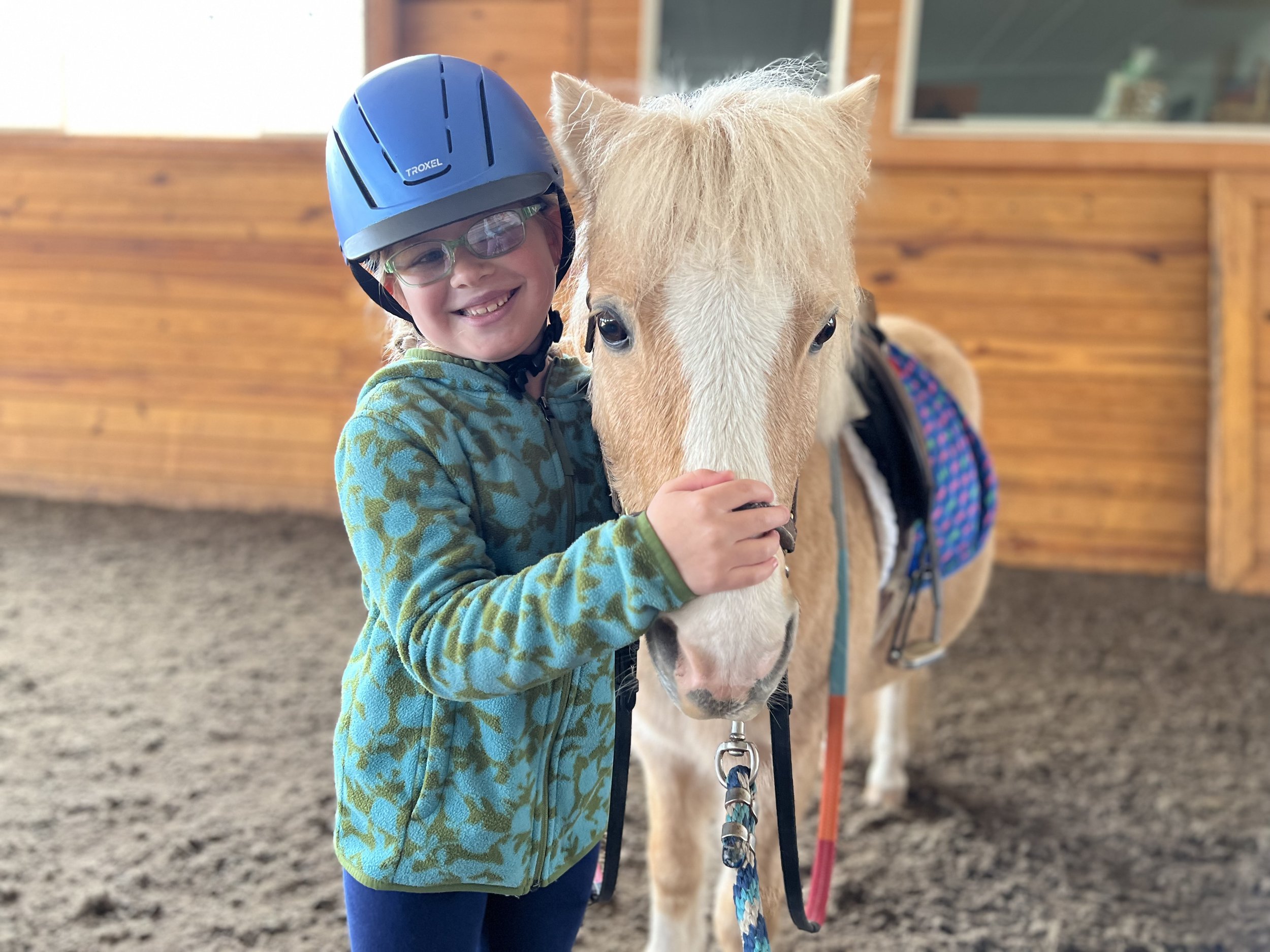
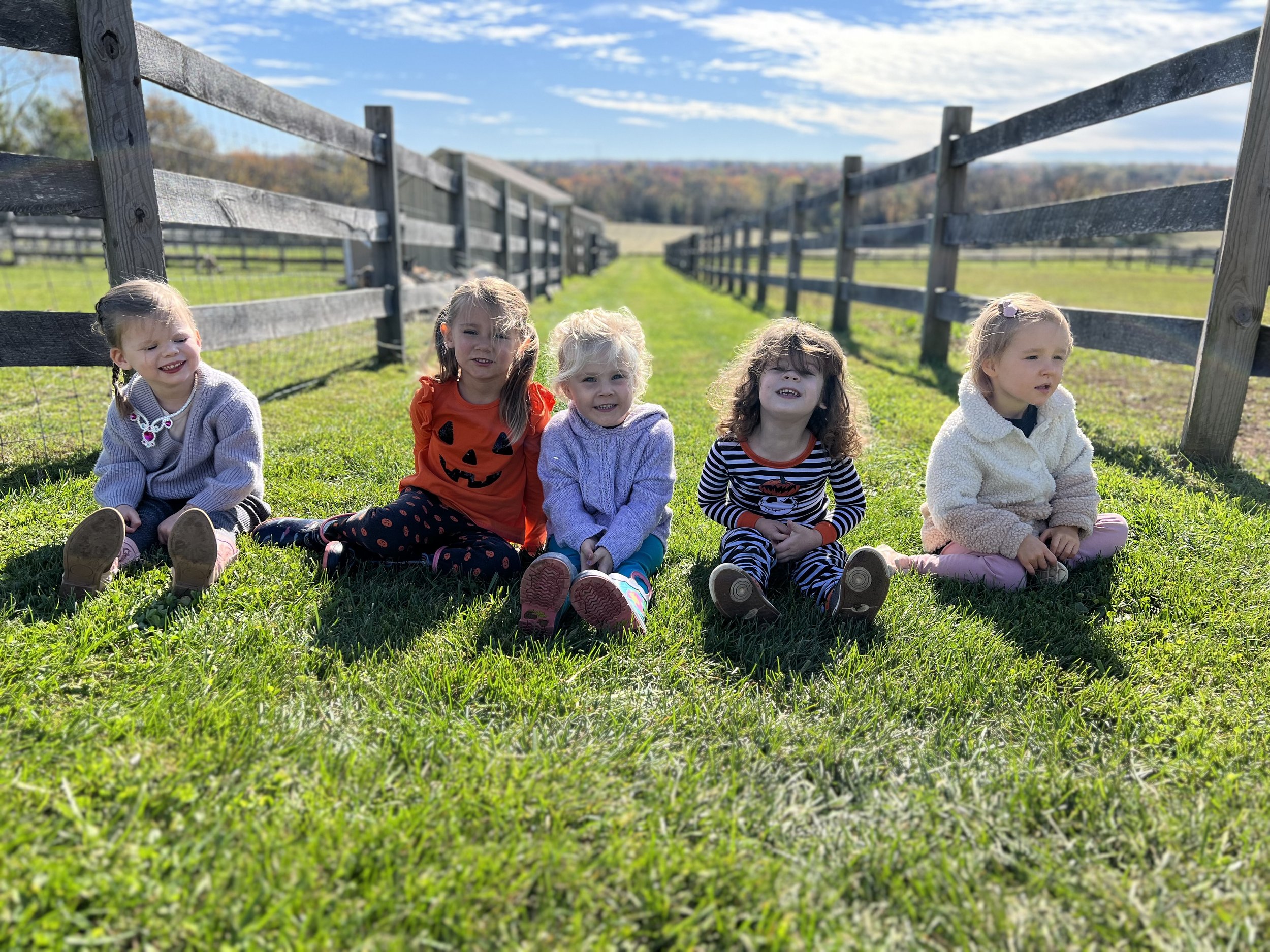
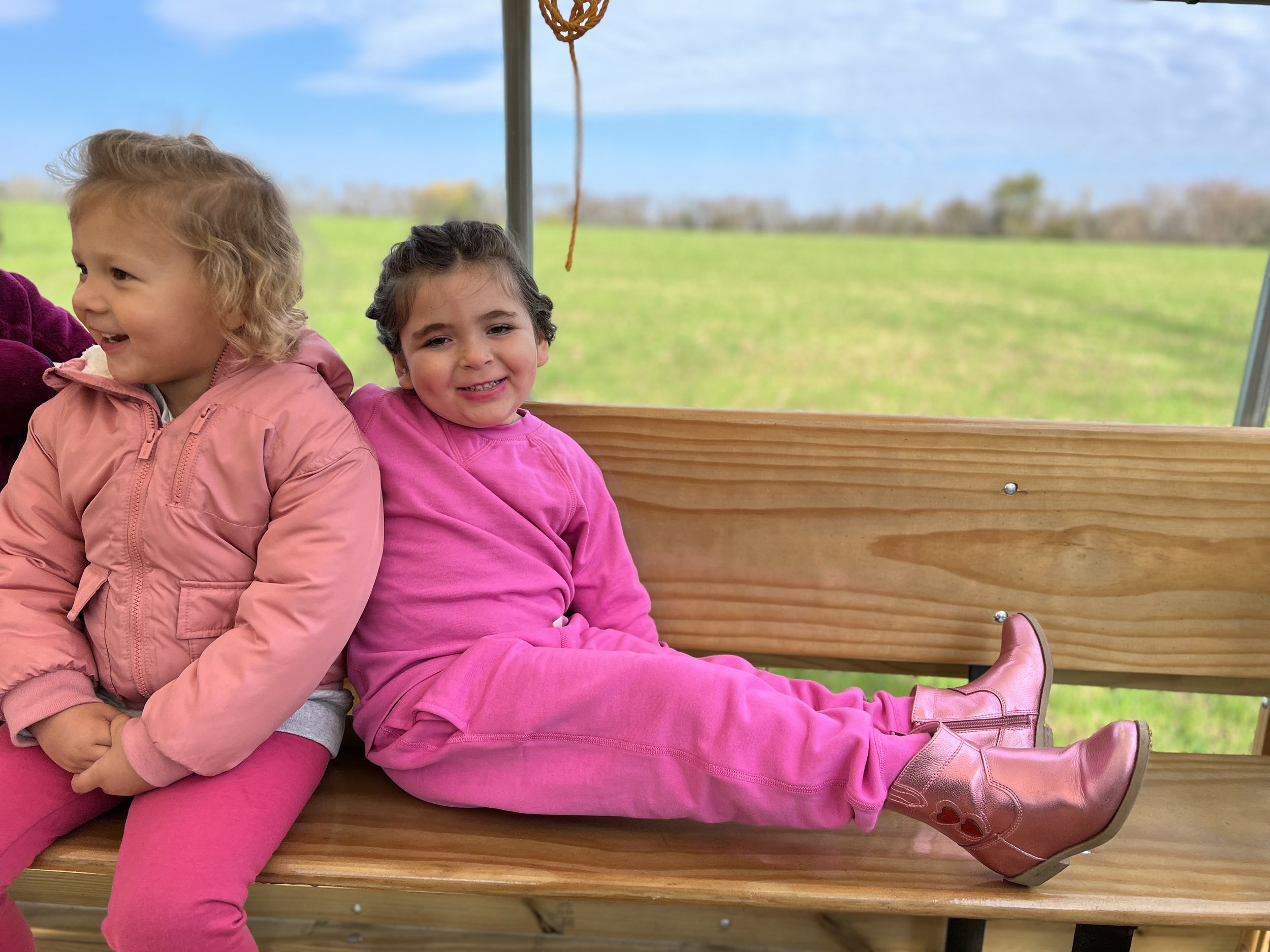
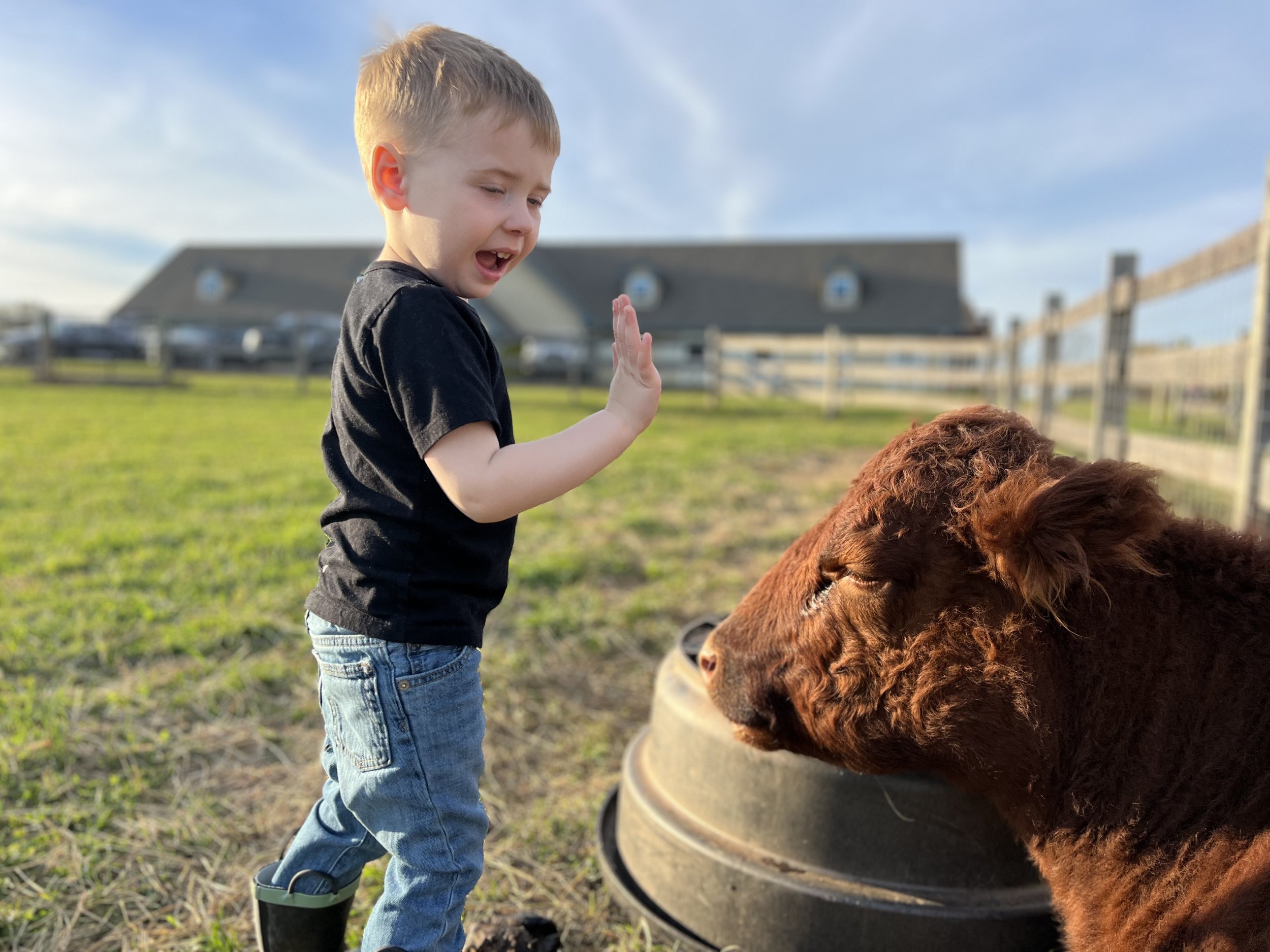
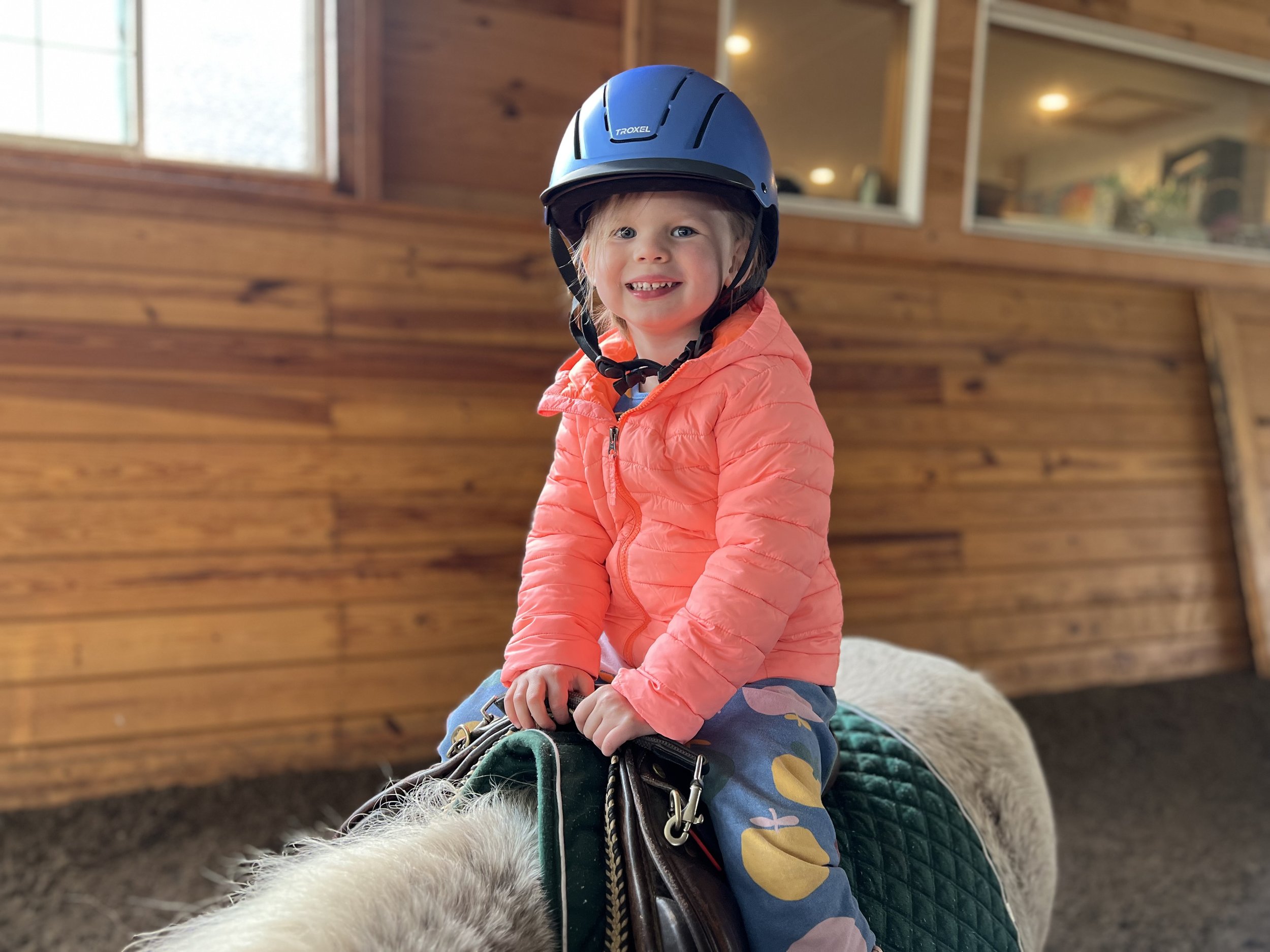
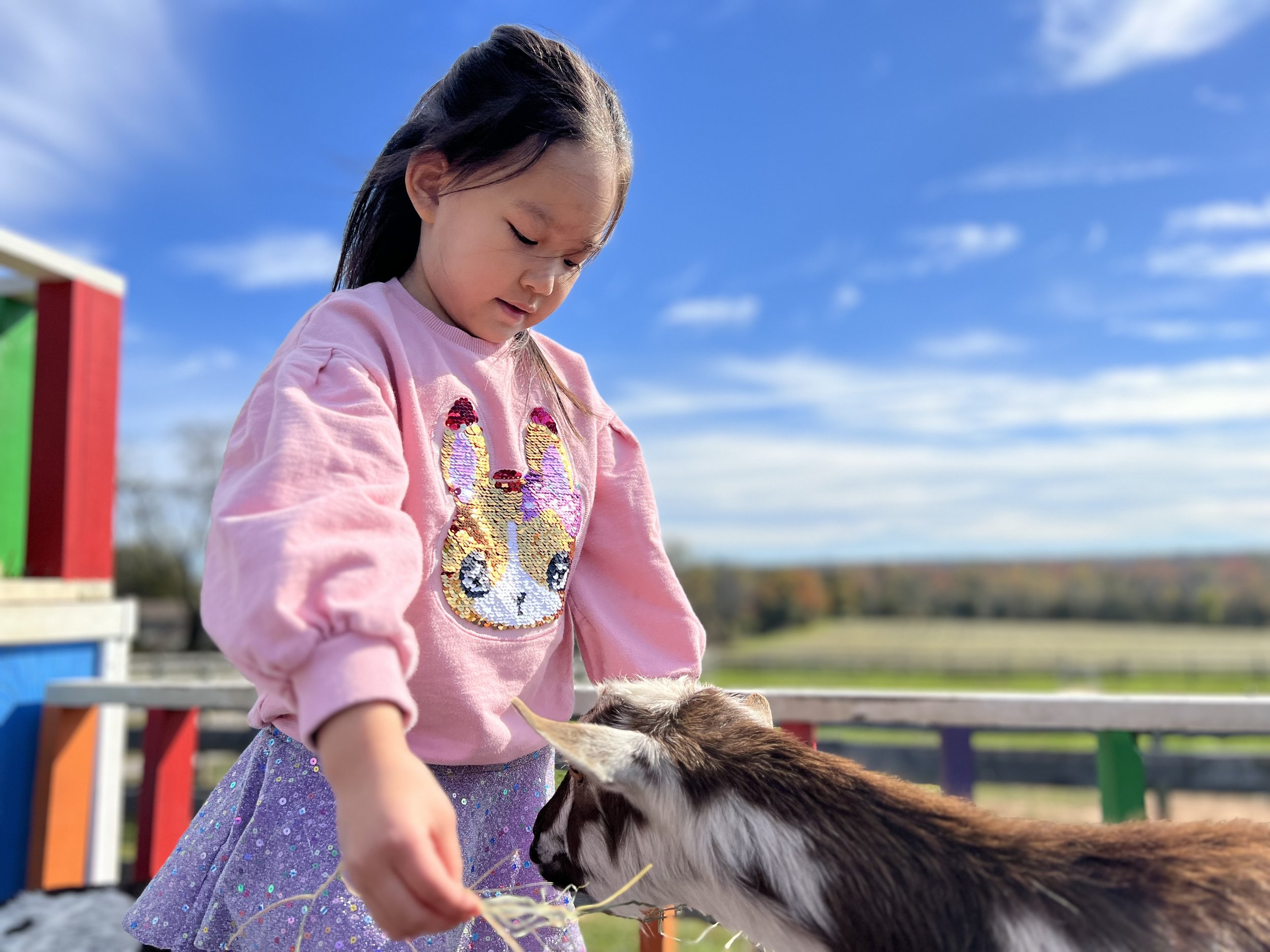
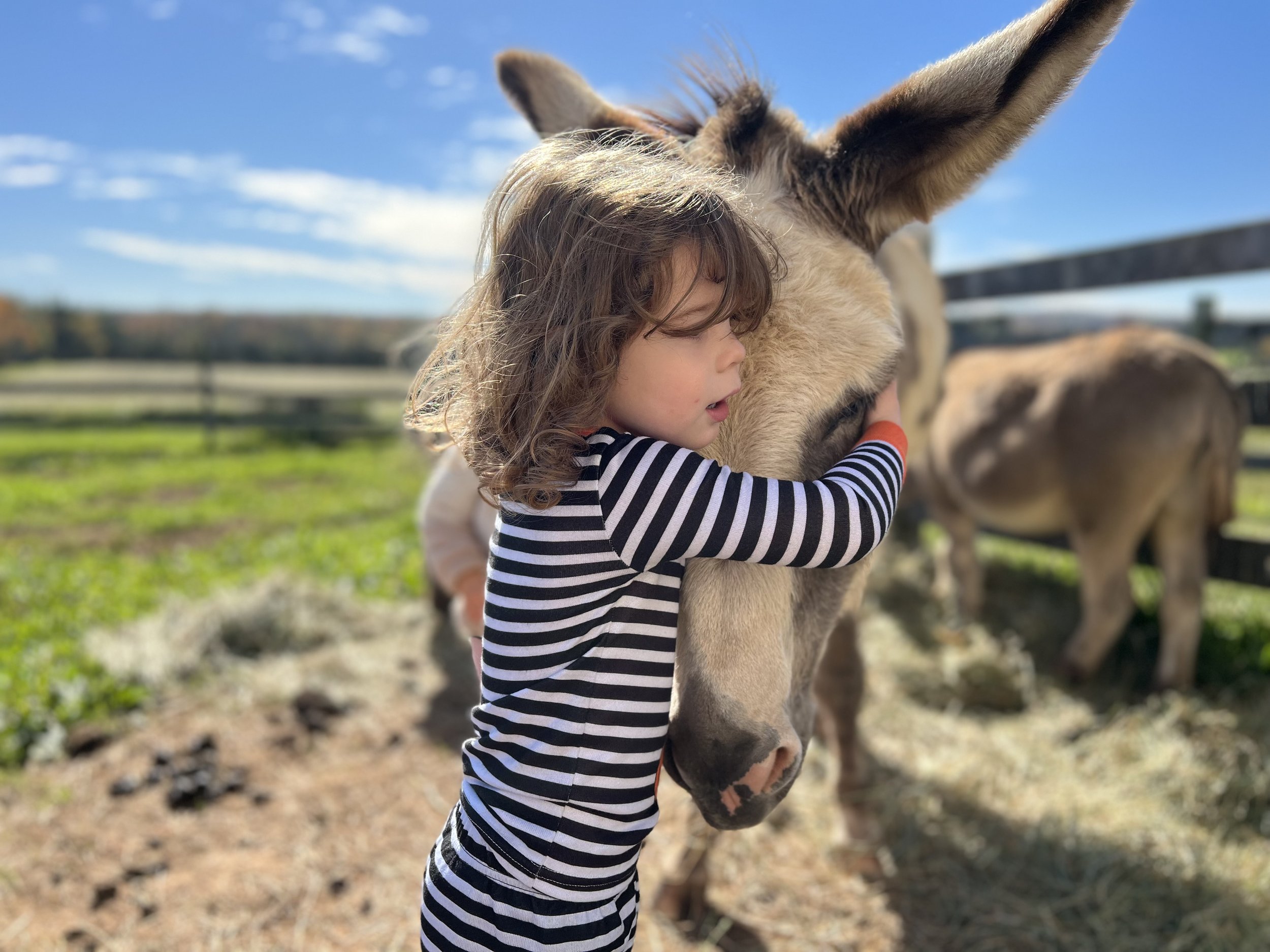
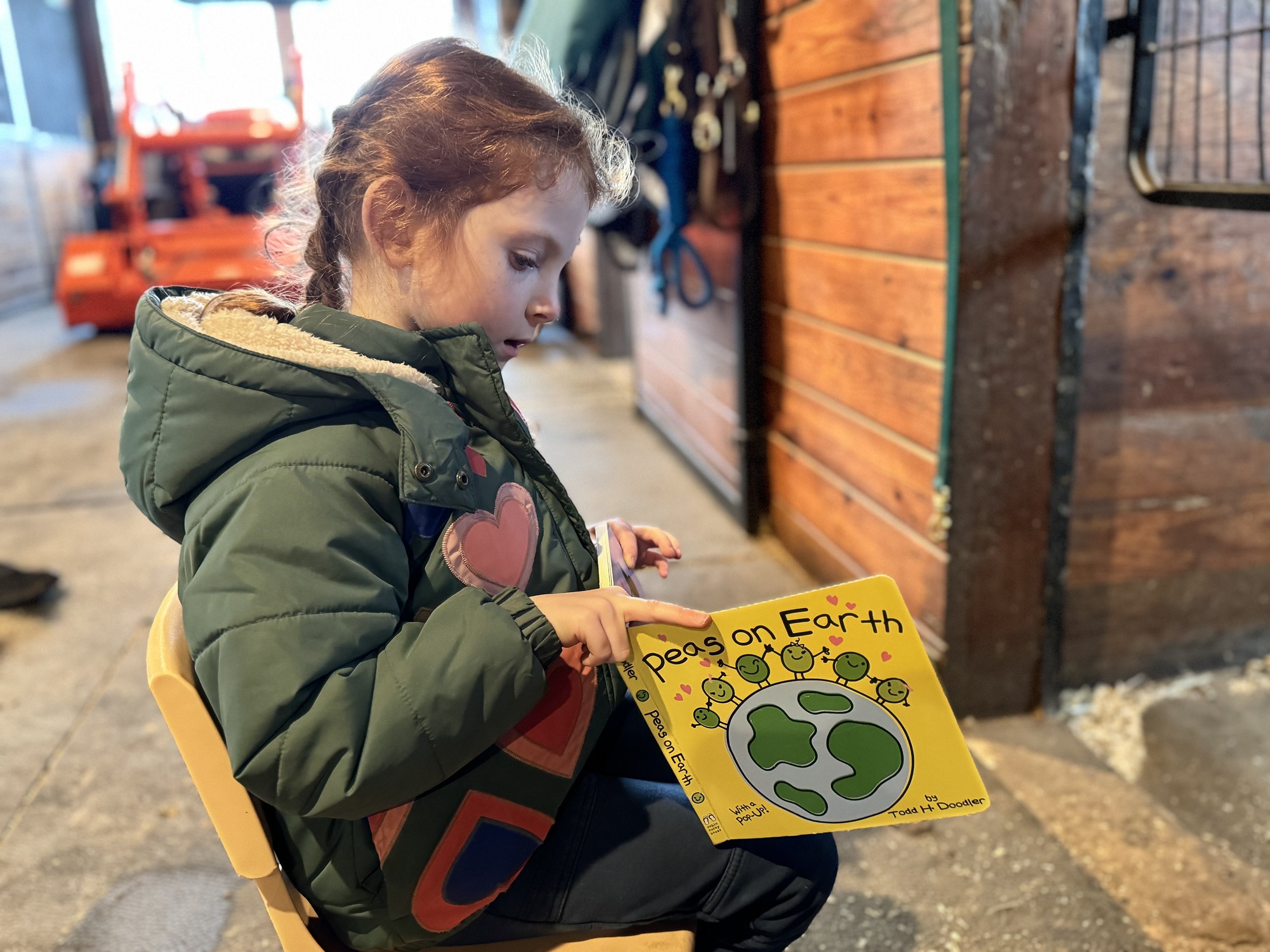
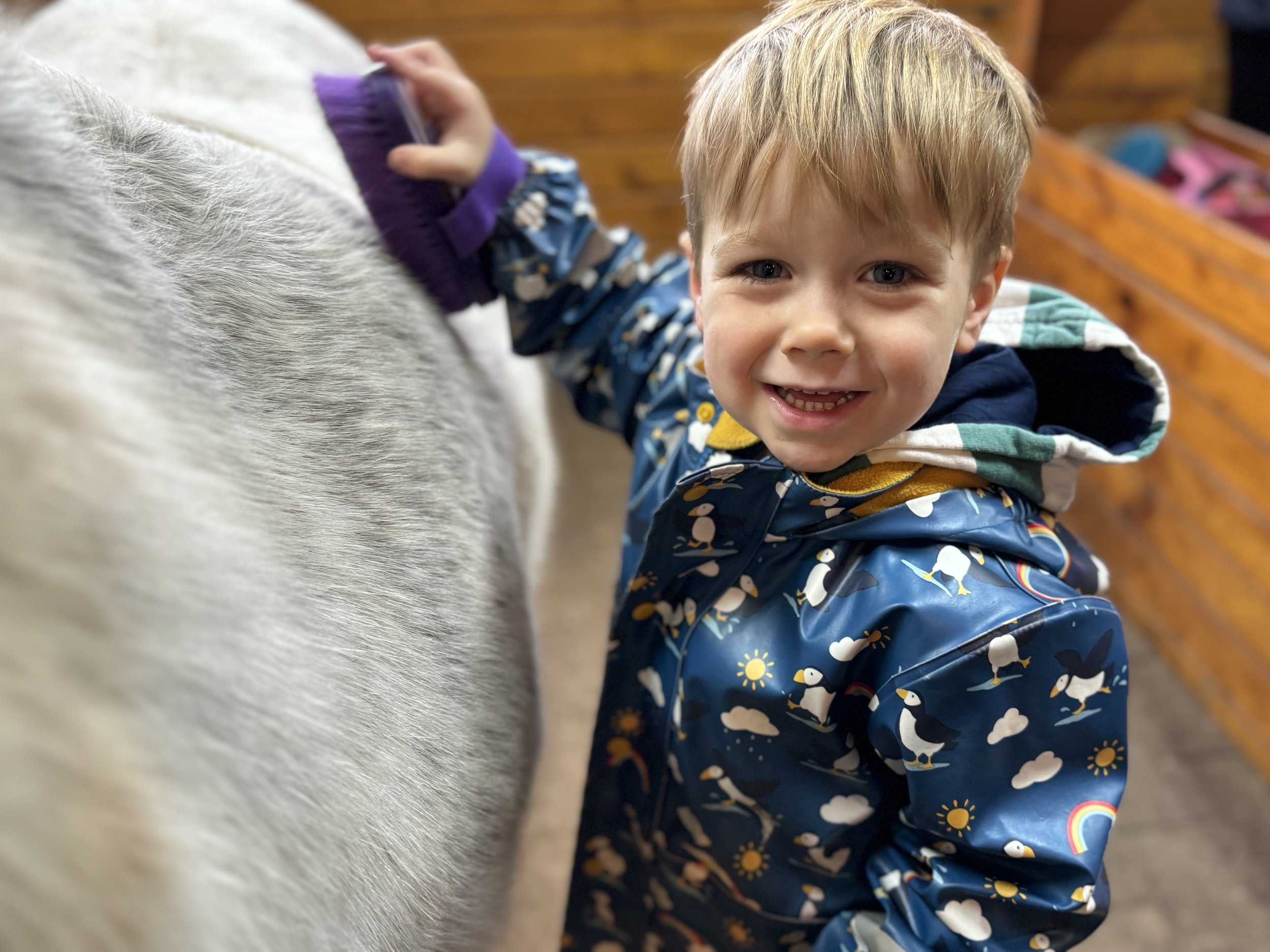
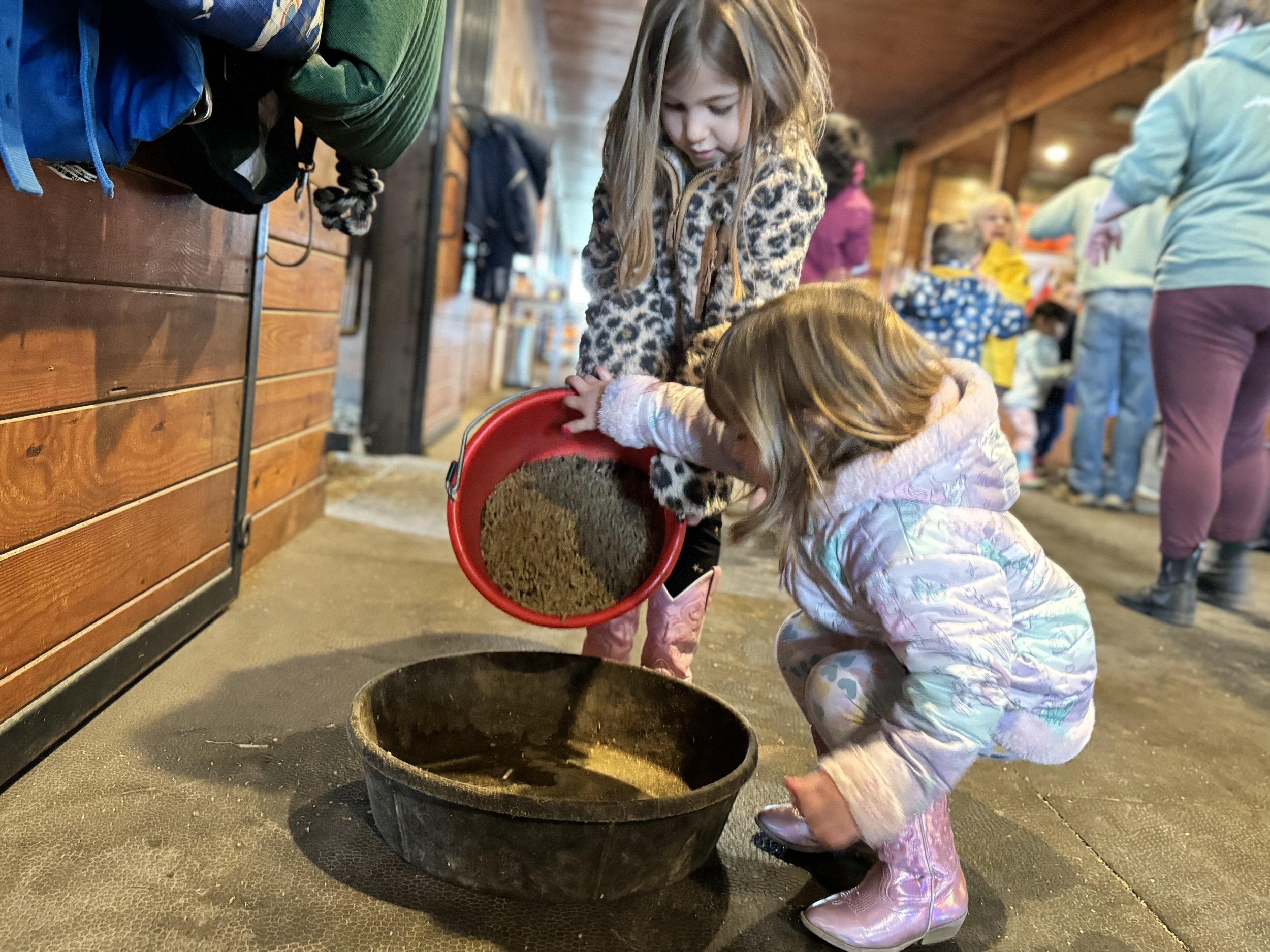

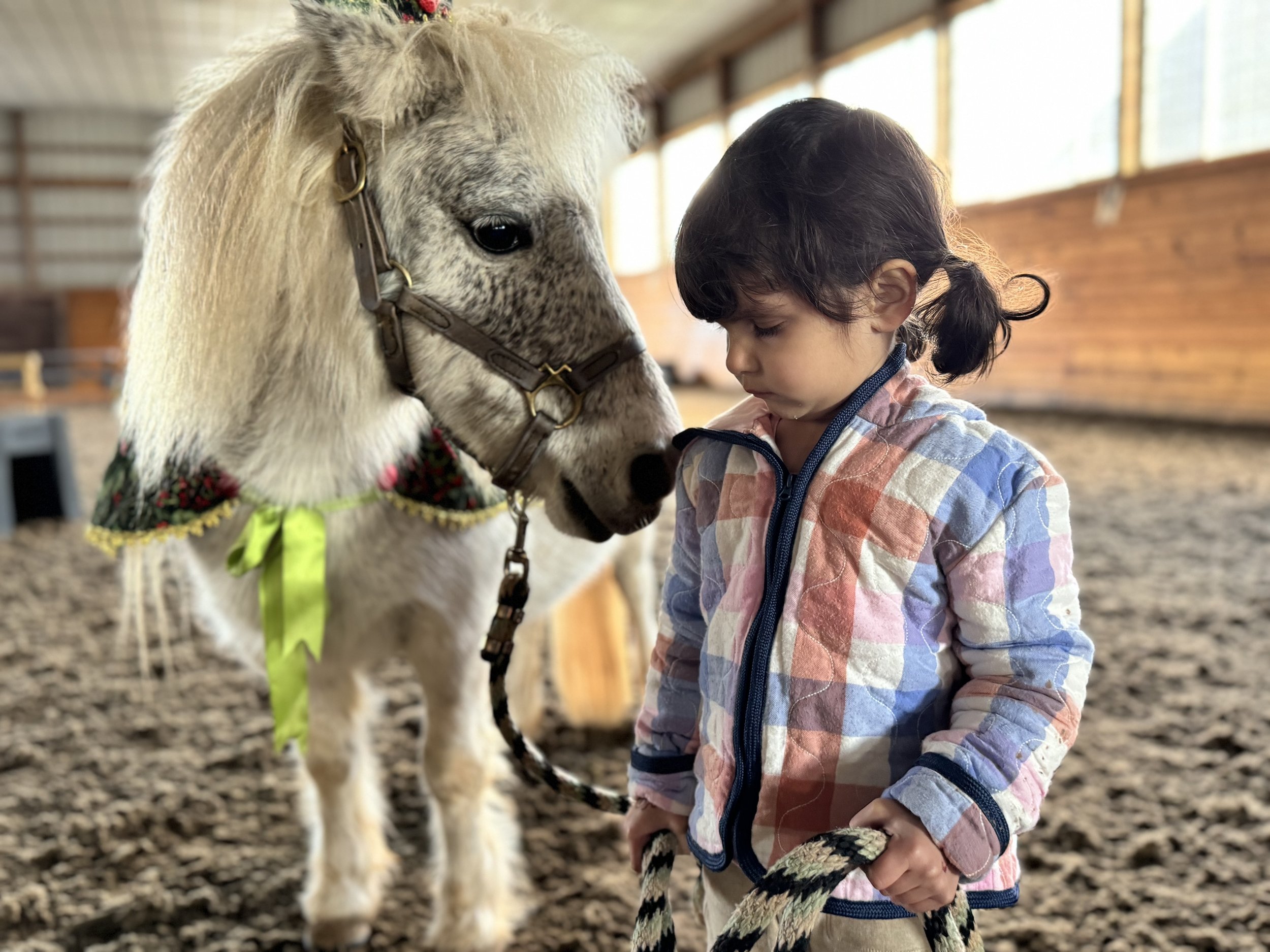
“Every child is an artist. The problem is how to remain an artist once we grow up.”